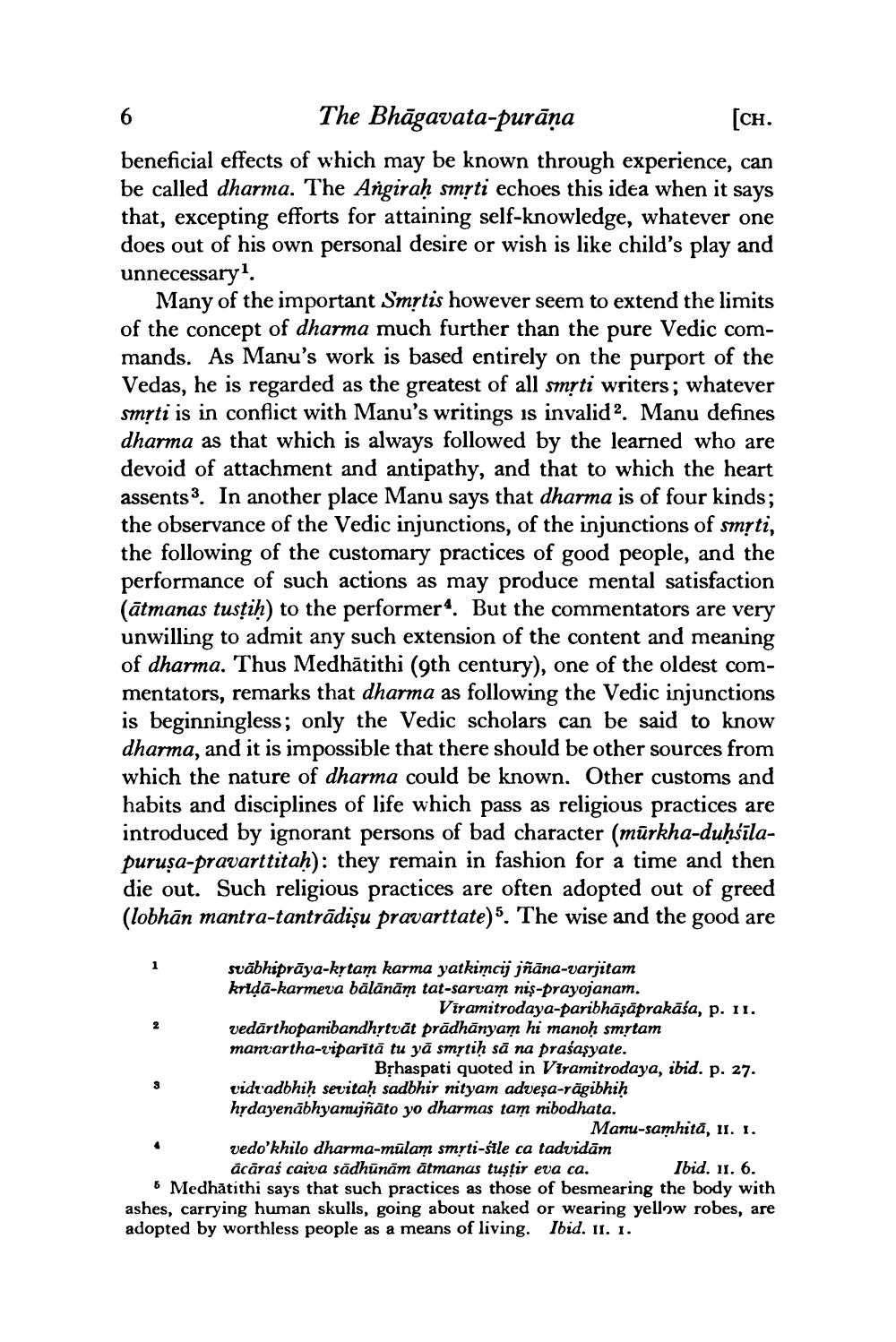________________
The Bhāgavata-purāņa
[CH. beneficial effects of which may be known through experience, can be called dharma. The Angiraḥ smrti echoes this idea when it says that, excepting efforts for attaining self-knowledge, whatever one does out of his own personal desire or wish is like child's play and unnecessary
Many of the important Smrtis however seem to extend the limits of the concept of dharma much further than the pure Vedic commands. As Manu's work is based entirely on the purport of the Vedas, he is regarded as the greatest of all smrti writers; whatever smrti is in conflict with Manu's writings is invalid. Manu defines dharma as that which is always followed by the learned who are devoid of attachment and antipathy, and that to which the heart assents. In another place Manu says that dharma is of four kinds; the observance of the Vedic injunctions, of the injunctions of smặti, the following of the customary practices of good people, and the performance of such actions as may produce mental satisfaction (ātmanas tusțiḥ) to the performer4. But the commentators are very unwilling to admit any such extension of the content and meaning of dharma. Thus Medhātithi (oth century), one of the oldest commentators, remarks that dharma as following the Vedic injunctions is beginningless; only the Vedic scholars can be said to know dharma, and it is impossible that there should be other sources from which the nature of dharma could be known. Other customs and habits and disciplines of life which pass as religious practices are introduced by ignorant persons of bad character (mūrkha-duḥšīlapuruşa-pravarttitaḥ): they remain in fashion for a time and then die out. Such religious practices are often adopted out of greed (lobhān mantra-tantrādișu pravarttate)5. The wise and the good are
sväbhiprāya-krtam karma yatkimcij jñāna-varjitam krldā-karmeva bālānām tat-sarvam nis-prayojanam.
Viramitrodaya-paribhāsāprakāśa, p. 11. vedārthopanibandhrtvāt prādhānyam hi manoh smrtam manvartha-riparitā tu yā smrtiḥ sā na praśasyate.
Bphaspati quoted in Viramitrodaya, ibid. p. 27. vidtadbhiḥ sevitaḥ sadbhir nityam adveşa-rägibhih hrdayenābhyamujñāto yo dharmas tam nibodhata.
Maru-samhita, II. I. vedo'khilo dharma-mulam smrti-stle ca tadvidām äcāras caiva sādhūnām ātmanas tuşfir eva ca.
Ibid. 11. 6. 6 Medhătithi says that such practices as those of besmearing the body with ashes, carrying human skulls, going about naked or wearing yellow robes, are adopted by worthless people as a means of living. Ibid. 11. 1.




